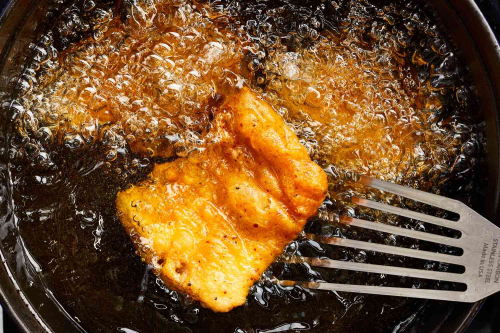- Nomad Foods
- Responsive
- Project Size Range : Strategic project backed by large scale funding €
- Posted by
Desired outcome
Seeking Collaboration to understand phenomenon leading to the creation of 3-MCPD in pre fried food products and implement solutions to limit and control their level in pre-fried foods. We are looking to collaborate with individuals, companies or academic institutions:
- to develop our knowledge of the parameters leading to the creation of 3-MCPD esters in our industrial conditions
- assess the impact of time vs temperature in the 3-MCPDs esters creation
- to develop predictive models & lab scale test methods to facilitate product design, assess risk & define processing parameters
- impact of mono and diacylglycerols in oil before cooking
- to develop quick and reliable methods that would allow to measure (directly or indirectly) 3-MCPD levels in the frying oil
- to implement process-control solutions at the industrial scale, preferably within a 2 year timeframe
Nature of collaboration is to be negotiated.
Innovation Nede Background
3-MCPD esters are contaminants formed when vegetable oils are heated above 185 °C in the presence of chloride
EU food regulations require that the Total Daily Intake (TDI) does not exceed 2 µg/ kg body weight. Based on this requirement we have specified that the maximum level of 3-MCPD esters in a portion of fried food to be consumed as part of the main meal should not exceed 50% of the TDI, which is lower for children due to their reduced body weight.
The levels regarded as acceptable by some consumer orgaisations are somewhat lower & approaching the level of detection.
Extensive factory-based studies have been conducted to try to understand & limit the generation of 3-MCPDs during the industrial frying process. Factors known to be important include:
1. the temperature of the oil & how the oil is heated
2. the product composition
3. the level & type of salt in the recipe
4. the presence of any catalysts
5. initial level of 3 - MCPD esters in oil
Based on these studies, the levels of 3-MCPDs generated have been significantly reduced but are not entirely predictable & occasionally levels are observed that are unexplainable & higher than desirable.
Type of collaboration
Nature of collaboration is to be negotiated.
Related Keywords
About Nomad Foods
Manufacturer of frozen foods, with 20 production plants, ~8000 employees.. A European Frozen pureplay with a long runway for growth and value creation. Strong commitment to innovation with Central and Regional R&D capacity.
About Open Innovation Challenges
Open Innovation Challenges on Agri-Food are directly posted and managed by its members as well as evaluation of proposals.
Help
Need help submitting your proposal or have questions regarding this Open Innovation Challenge?
Contact support
FAQs
In the solution proposal submission form:
- Do not disclose confidential information that is not properly protected
- Explain and focus on the benefits of applying and/ or developing your solution or technology rather than how you will get into it
- Provide information about specific expected outcome, implementation or developing timeline and costs
- Explain about your track record on projects you have successfully worked related to this technology field
- Use pre-defined buttons to give specific details about your proposal “Stage of development”, “Commercial Information” and “Intellectual Property Status”

